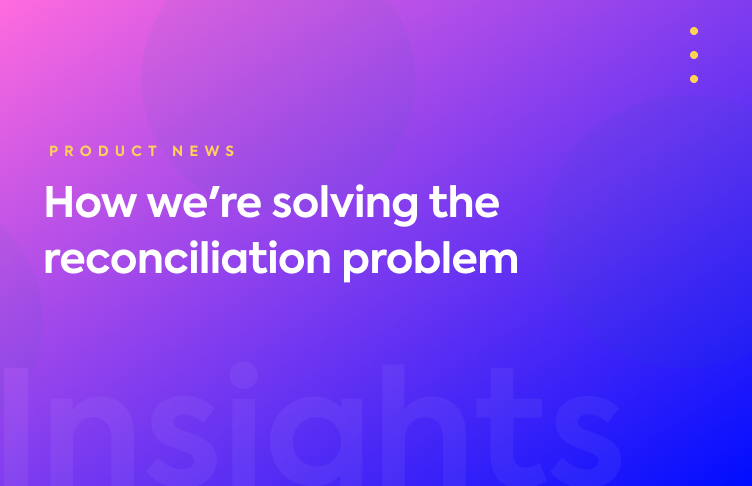
Why SMBs and financial service providers alike need a revolution in reconciliation
If you’ve ever worked in a frontline finance job for any business, you’ve done a piece of reconciliation. Hours, if not days, pouring through Excel, trying to match one set of transactions with another set of records.
Why are we forced to endure hours of administrative drudgery?
Reconciliation is essential. It’s necessary to ensure the various systems of record that businesses use are in sync, and that no value slips through the cracks. Invoices must be matched by payments. Payments must be marked as received in the other party’s bank account. This is undoubtedly vital work, but it’s time consuming and boring.
Codat’s data integrity engine, part of our Insights product range, makes identifying bookkeeping discrepancies simple by automatically matching accounting records with banking data. We flag any unmatched transactions so you can decide on the most suitable course of action. Find out more about data integrity below.
Drilling into the problem for small businesses
Small businesses typically use anywhere between 50-100 applications to run their operations. This network of systems is made up of applications that often do one job, such as inventory management, with the accounting software at the centre bringing these sources together to a single source of truth for business data.
More and more of this data flow is now being brought in through automatic integrations, the benefits of which are only just really starting to be recognised by the market.
In practice, however, the lack of a fully integrated ecosystem where these applications automatically talk and sync data between each other means businesses, and their frontline finance staff, are burdened with the task of manually entering and reconciling data between all of these systems.
This highly inefficient process oftentimes leads to data being entered late, incorrectly, with limited detail, or even being missed completely.
The role of the accounting system
At the centre of this ecosystem, the accounting software provides tremendous value to the business when it comes to making effective decisions and planning for the future. However, when data entry is poor, this results in gaps in visibility and leads to ineffective decisions, missed opportunities, and overall decreased performance.
Financial institutions also suffer as it requires more resources to process this data and do their own reconciliations. The work of bookkeepers at a business is then replicated by bank employees re-doing the same work. What this means is, nobody wins.
The high cost of services out-prices the small business budget and the total addressable market for the financial institution is significantly reduced. Access to financial services continues to be cut off for small businesses.
The solution
What everyone needs is an up-to-date and accurate source of data which provides a detailed picture of all facets of a business.
How can we achieve that?
Accounting data is highly contextual and rich but due to the fact that it is user entered, it can be open to manipulation, poor bookkeeping, or fraud. Banking data direct from source lacks context but is immutable. The union of these data sources provides a detailed, contextual, and trusted data source, or put another way – results in a verified set of real-time management accounts.
How Codat can help
Our new data Integrity engine automatically matches bank transactions to accounting records to give recommendations for real-time reconciliation. We’re not removing the work of bookkeepers and underwriters, just making it far easier for them to see where the discrepancies lie. The transactions which could not be matched will be surfaced so you can decide the best next steps.
With greater confidence in the quality and accuracy of bookkeeping, you can embrace the benefits of digital data collection for customer experience, while actively strengthening underwriting, monitoring, and anti-fraud processes. Lenders, for instance, can utilise this functionality to confidently assess creditworthiness, mitigate risk, and lower the time and cost of serving their business customers.
Here at Codat, our mission has been clearly stated since our first day – to make life better for small businesses. We build the integrations between the systems they use, and we are now helping them to analyse and manage their data. Releasing businesses from the tedium of reconciliation, and making it easier for financial services providers to give them the products they need, is just one further step down that road.
Interested in seeing a demo? To find out more about how data integrity could help your business, please contact [email protected].
